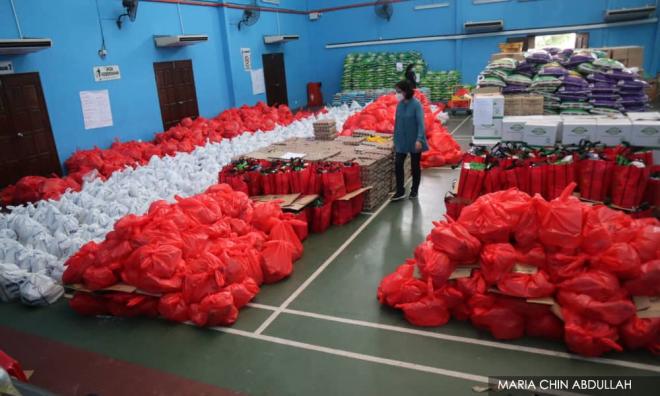
During this Covid 19 pandemic, people’s world view has definitely changed.
For example, we never thought healthcare in the rich countries like the US, Italy, Spain and UK would be so bad as not to have enough ventilators in their hospitals to handle their critically ill patients.
With all the achievements in Science, we never knew the most effective way to fight this virus was still by washing one’s hands, wearing a mask and self-isolation, which were the methods used a 100 years ago to fight the Spanish flu in 1918.
With all the rocket science and military advancement, these countries’ performance in handling the global pandemic is disgraceful.
In Malaysia, we are glad as recent numbers indicate that we have been able to level the curve and our medical facilities seem adequate for handling the health demands of our population.
We are of course grateful and thankful to all those at the front line for their sacrifice. While the Covid-19 crisis is not over, the prolonged economic crisis which is imminent is even scarier.
The Malaysian government in their daily Covid-19 updates have always given recognition to the immense role played by the Health Ministry especially the doctors and the nurses.
This was followed next with an appreciation for the police, army, fire brigade and Rela for their efforts in enforcing the movement control order (MCO) and maintaining social distancing among the public.
Agriculture – the backward sector
Another very important sector and a very essential sector during this crisis is the agricultural sector. This sector with their frontliners such as farmers and fisherman –produce food and ensure that there is food on our tables.
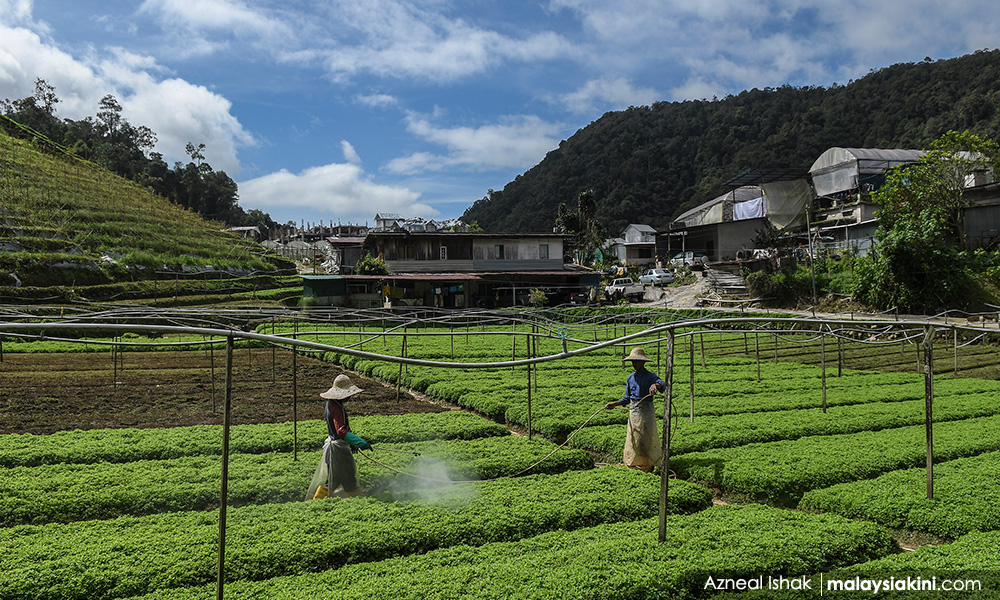
These sectors unlike the doctors and nurses do not fall under the high and medium-income brackets because most farmers are categorized under the B40 category and continue to need government support and subsidy. The farming and agricultural sector is normally reflective of poverty and backwardness in society.
The growth of capitalism is mirrored in the success of the industries. That is why economic powerhouses like the US, Japan, Germany and the UK are all based on the industrial sector.
China has today emerged as one of the superpowers because it took the shift from agriculture to the industrial sector. Many Asian countries like Malaysia, Vietnam and Thailand have also opted for the same economic model to be successful and rich.
In Malaysia, our former prime minister Dr Mahathir Mohammad in 1997 changed the name of the Universiti Pertanian Malaysia to Universiti Putra Malaysia as a strategic move as he saw that anything linked to agriculture indicates poverty, low self-esteem, etc. It was during Mahathir’s era that we saw the great industrial leap in Malaysia.
Daim Zainuddin, Mahathir’s close ally in an interview in November last year by The Edge admitted that the shift from primary industries to export-oriented industries helped Malaysia secure a footing in the global manufacturing market but as people flocked to manufacturing and assembly, the agriculture sector was neglected.
Today Covid-19’s assault on the world has exposed what really is the essential sector. While the industrial sector generally shut down, it was the food and agricultural sector which has ensured food supply for all of us.
For too long we have marginalised the food and agricultural sector, for too long neglected the hands that toil to feed us.
Food security
What is most evident during this crisis is the need for the food chain not to be disrupted and the need for us to have food security or self-sufficiency.
According to Bank Negara Malaysia report in 2019, Malaysia remains a net food importer with imports forming at least a quarter of total food supply (24 per cent).
Malaysia’s food import bill increased massively from just RM10.5 billion in 1998 to RM51.28 billion in 2017. Total imports of imported food were RM53 billion in 2018 and today it has hit almost RM60 billion.
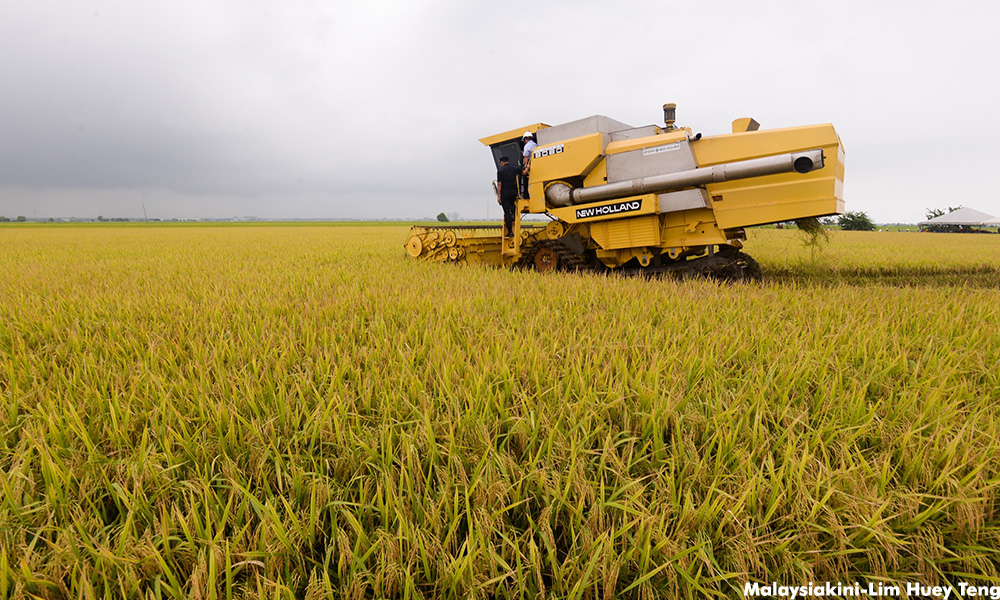
Now let’s take rice as an example- our main staple food. Malaysia at one time was self-sufficient as far as rice was concerned but today we are a net importer of rice.
A decade ago, the BN government targeted that by this year, 2020, we will be self-sufficient in rice but two years ago, agricultural Minister Salahuddin Ayob said that Malaysia now targets 80 percent of rice self-sufficiency by the year 2022. Currently, our self-sufficiency is just above 70 percent.
Experts say that though Malaysia is currently not facing a crisis in food security we need to act fast to prevent one as the current import of food is not sustainable. The Covid-19 pandemic has exposed our vulnerability.
Recently because of Covid-19, Vietnam has suspended its rice export to us. There is fear that similar steps will be taken by other countries to secure their own food supplies and thus impact the global food chain.
The Covid-19 outbreak is likely to affect food security for Malaysia. Almost 30% of the food consumed by our people is imported into Malaysia and our growing dietary pattern seems to only indicate this dependency will grow.
The memorandum to PM Muhyiddin
On 23 April this year, during the height of the Covid-19 attack, farmers from 56 areas and small cattle holders submitted a memorandum to the Prime Minister, Muhyiddin Yassin.
The four-page document urged him to stop forced eviction of farmers and smallholders and to protect food security in the country.
This event went unnoticed and no media covered the memorandum or highlighted the plight of the food-producing community. They came from 56 areas, mostly producers of vegetables, fruits, freshwater fish, dairy and meat products for Malaysians.
Most of them are threatened by forced eviction. Hundreds of small farmers who have been working their farms for three generations are being evicted annually by new private companies to whom the state has given ownership of the land.
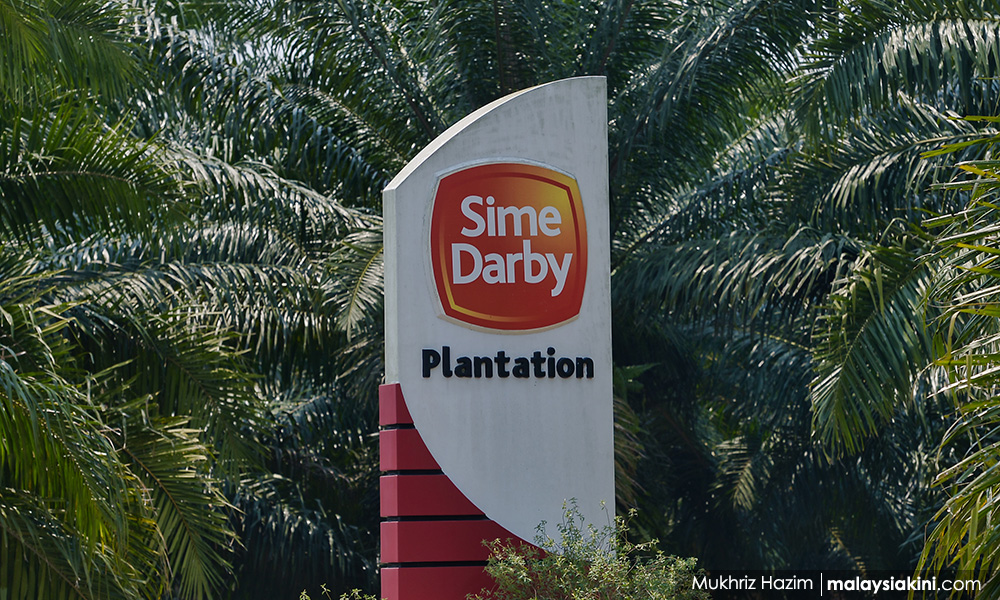
Thousands of those involved in raising cattle and goats are being threatened by Sime Darby Company's decision to ban all cattle and goat farms in their plantation.
These smallholders are mainly current and former estate workers who have been around for more than 40 years and some with the encouragement of the Buku Hijau initiative by the Second Prime Minister – Tun Abdul Razak.
Today, the total import of vegetables itself is RM4.6 billion and total import of milk and meat is RM7.7 billion.
So our dependence on imports is huge. It will be insane if we don’t take their plight seriously. This is not the time to pressure farmers and smallholders and drive them away from the land they are working on.
Most of the suggestions in the memorandum are practical and need wisdom as well as some political will to incorporate into policy.
Among the suggestions put forward is that the National Security Council (NSC) should collect data from all state governments on the numbers of smallholders and farmers who are working on government land as well as farmers who have been threatened by landowners for the past 15 years.
The NSC should then convene a meeting of the National Land Council (as provided for in clause 91 of the Malaysian Constitution) to formulate a policy that will allow small farmers as part of an essential sector to continue their efforts to produce food.
There should also be a moratorium to stop forced eviction of farmers and smallholders for the next two years and land used for agriculture and livestock should be retained.
Secondly, the memorandum proposed that smallholders who are working on government land should be offered a 20-year lease on their land (with a maximum of 20 acres each) provided that they continue with the cultivation of vegetables, fruits, livestock or fish.
There can also be conditions set to cancel the lease if they neglect or misuse the land given to them. The government should also look into providing financial assistance to retain these small farmers to continue their involvement in food security.
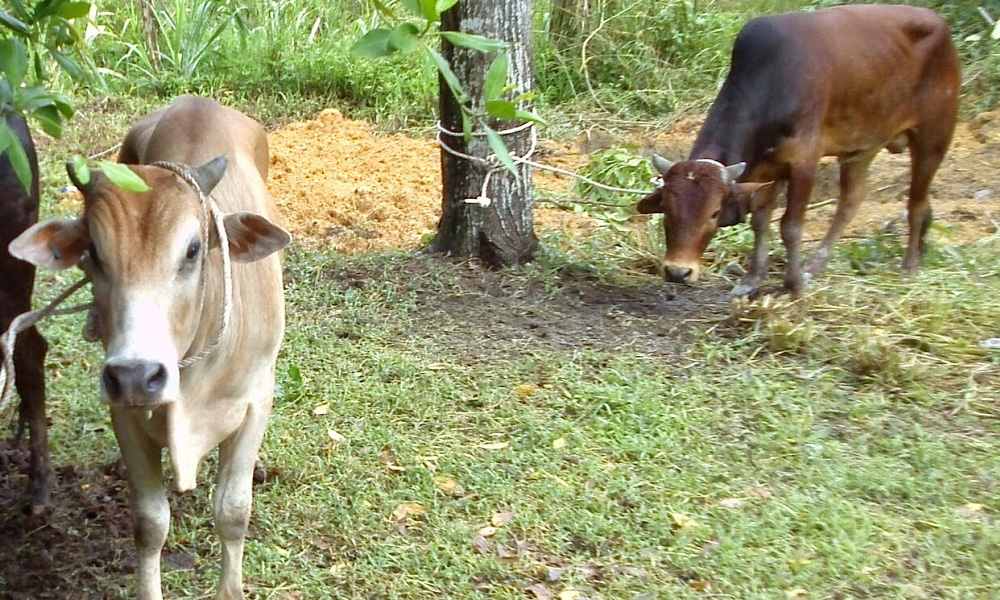
The problem facing cattle breeders in threatened with eviction by Sime Darby can be resolved since Sime Darby is a government-linked-companies (GLC) and should put national interest above profit.
The suggestion in the memorandum is for the NSC to proactively resolve the problem between the smallholders and Sime Darby.
This is a practical solution as plantation land has been used as pastures for the past 50 years by cattle owners without affecting the production of the plantation sector in the country.
Sime Darby is a GLC and should be advised to cooperate in the interests of Malaysian food security.
While Covid-19 has created a new normal in our attitude on how we go about doing things, the local food industry and its frontliners need our protection more than ever. Their survival will ensure our survival as well.
In addition, Universiti Putra Malaysia lecturer, Professor Dr Fatimah Mohamed Arshad has said that investing in agriculture is never wasteful as it ensures food sustainability for the people as well as conserving the environment with lush greenery and creating diverse biodiversity.
Let’s not bite the hand that feeds us.
S ARUTCHELVAN is PSM deputy chairperson. - Mkini



No comments:
Post a Comment
Note: Only a member of this blog may post a comment.